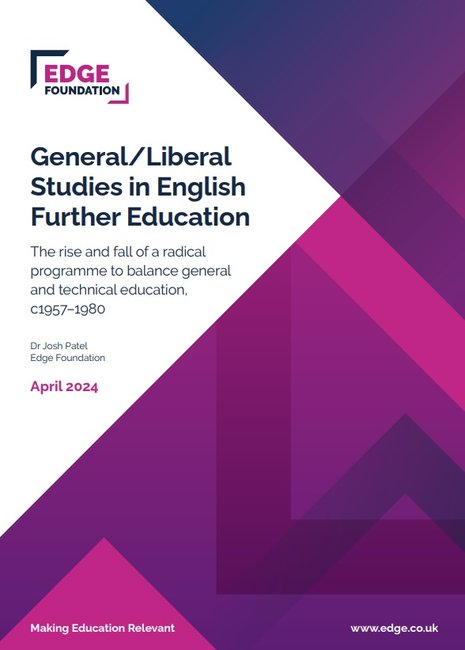There is a growing consensus that participation in education and training should facilitate adaptability and flexibility to engage with a labour market driven by rapid technological change and heading in uncertain and unknowable directions. Policy initiatives to facilitate a breadth of study and foster generic skills range from the study of English and Maths to 18 and Functional Skills Qualifications, through to the mandatory inclusion of employability skills, enrichment, and British Values.
However, recognition of the importance of these skills is hardly new, and indeed such efforts today pale in comparison to the ambition of initiatives in the past. From the 1950s to 1980s, a radical, student-centred educational programme in all Further Education Colleges attempted to cultivate not just adaptability for the labour market but prepare young people for their future social roles and citizenship.
General/Liberal Studies (GLS) emerged in the 1950s from concerns to meet the ever-growing demand for the appropriate deployment of technological knowledge and skills. GLS was astonishingly free-from. Tutors wielded enormous autonomy and there was no assessment. GLS nevertheless exercised a strong educational mission, aiming to cultivate critical thinking and communication skills, a meaningful awareness of citizens’ rights and responsibilities, and to expose students to culture. It enabled rich student-centred discussion and outcomes. By the 1970s and 1980s, anxieties about national economic troubles and rising youth unemployment amplified concerns for greater accountability over the FE curriculum. By the 1980s this led to the emergence of what has been described as ‘Communication Studies’ and the dismemberment of any identifiable programme of GLS.
With its discourse-based pedagogy, social-mindedness, and high degree of tutor autonomy, GLS epitomises principles that remain relevant and important. But tensions between that autonomy and the need for accountability led to its demise and blanching much of its distinctive educational characteristics. Its story encapsulates many of the factors shaping the salient features of the FE system today.


